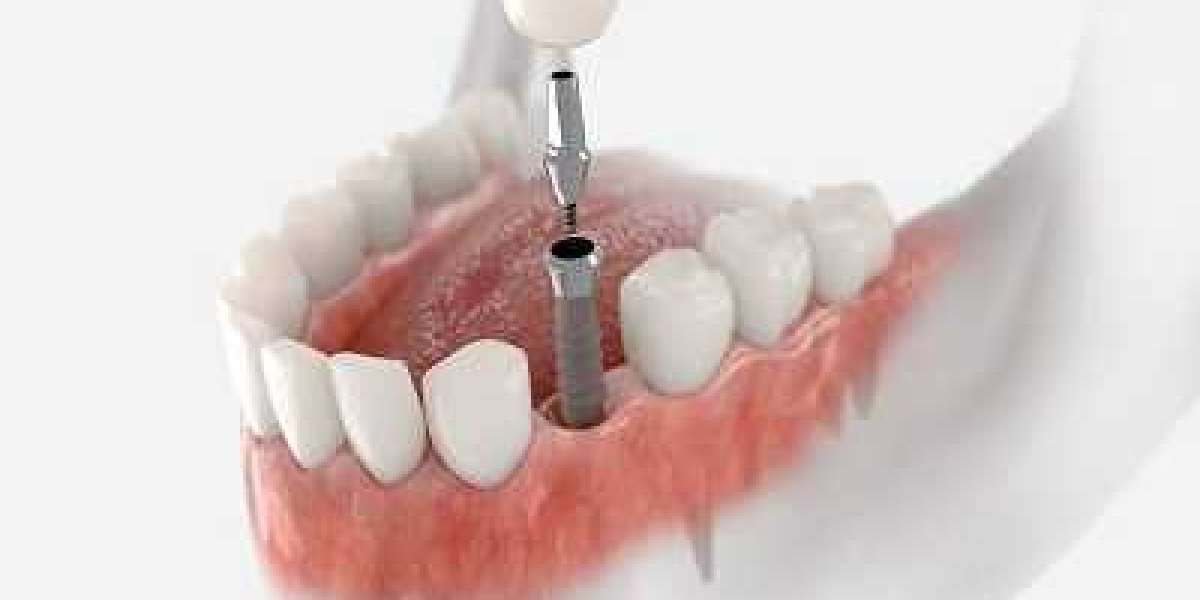Dental implants are a reliable and effective solution for replacing missing teeth, offering both functional and aesthetic benefits. However, the success of Best Dental Implants Clinic Dubai is not solely dependent on the skill of the dentist or the quality of the implants themselves. Your lifestyle choices play a significant role in determining the long-term success of your dental implants. From diet and oral hygiene to smoking and stress management, various factors can influence the outcome of your implant surgery. Here’s how your lifestyle choices can impact the success of dental implants and what you can do to ensure the best possible results.
1. Smoking and Tobacco Use:
Smoking is one of the most detrimental habits when it comes to the success of dental implants.
Impact on Healing:
Smoking reduces blood flow to the gums and bone, which can significantly impair the healing process after implant surgery. Poor circulation can lead to slower recovery and increase the risk of complications such as infection.
Higher Risk of Implant Failure:
Smokers have a higher rate of implant failure compared to non-smokers. The chemicals in tobacco can interfere with osseointegration, the process by which the implant fuses with the jawbone.
Gum Disease:
Smoking is a major risk factor for gum disease, which can weaken the supporting structures around the implant, leading to potential failure.
Recommendation:
If you smoke, it’s highly advisable to quit before undergoing dental implant surgery. Even reducing your smoking can improve your chances of success. Speak with your dentist about smoking cessation programs that can help you quit.
2. Alcohol Consumption:
Excessive alcohol consumption can also negatively affect the success of dental implants.
Delayed Healing:
Alcohol can interfere with the body’s ability to heal by suppressing the immune system and reducing blood flow to the surgical site. This can lead to prolonged healing times and a higher risk of infection.
Bone Density Issues:
Chronic alcohol use can lead to decreased bone density, which may compromise the stability of the dental implant. Strong and healthy bone is essential for the implant to integrate successfully.
Oral Hygiene:
Alcohol can also contribute to dry mouth, reducing saliva production, which is essential for maintaining oral hygiene and preventing infections.
Recommendation:
Limit alcohol consumption before and after your dental implant surgery to promote better healing and overall implant success.
3. Diet and Nutrition:
A well-balanced diet is essential for the success of dental implants. Proper nutrition supports healing, bone health, and overall well-being.
Bone Health:
Calcium and vitamin D are critical for maintaining strong bones, including the jawbone that supports the implant. A diet lacking in these nutrients can lead to weakened bone structure and compromise implant stability.
Healing Process:
Protein, vitamins A and C, and zinc are important for tissue repair and wound healing. A diet rich in these nutrients can help speed up recovery after surgery.
Avoiding Hard Foods:
After implant surgery, it’s important to avoid hard or crunchy foods that could put undue pressure on the implant site, risking damage during the healing process.
Recommendation:
Focus on a diet rich in fruits, vegetables, lean proteins, and dairy products to support your body’s healing process. Your dentist may also recommend specific supplements to enhance your bone health.
4. Oral Hygiene Practices:
Maintaining excellent oral hygiene is critical for the long-term success of dental implants.
Preventing Infections:
Poor oral hygiene can lead to infections around the implant site, such as peri-implantitis, which can cause inflammation and bone loss, potentially leading to implant failure.
Daily Care:
Brushing twice a day with a soft-bristle toothbrush, flossing daily, and using an antimicrobial mouthwash can help keep your mouth clean and reduce the risk of infection.
Regular Dental Visits:
Regular check-ups and professional cleanings are essential to monitor the health of your implants and address any potential issues early.
Recommendation:
Stick to a consistent oral hygiene routine and visit your dentist regularly to ensure the ongoing health of your implants.
5. Stress and Overall Health:
Your overall health, including how you manage stress, can influence the success of your dental implants.
Stress and Healing:
Chronic stress can weaken your immune system, slow down the healing process, and increase your susceptibility to infections, all of which can negatively impact implant success.
Systemic Health Conditions:
Conditions like diabetes, heart disease, and autoimmune disorders can affect how well your body heals and integrates the dental implant. Managing these conditions effectively is crucial for implant success.
Medication Use:
Certain medications, such as those that affect bone metabolism or immune function, can impact the success of dental implants. Always inform your dentist about any medications you’re taking.
Recommendation:
Practice stress management techniques, such as regular exercise, meditation, or counseling, to help support your body’s healing process. Ensure that any systemic health conditions are well-managed in collaboration with your healthcare provider.
6. Exercise and Physical Activity:
While exercise is generally beneficial for overall health, it’s important to approach physical activity with caution immediately after dental implant surgery.
Post-Surgery Activity:
Intense physical activity can increase blood pressure and lead to excessive bleeding or swelling at the implant site, potentially complicating the healing process.
Long-Term Benefits:
Regular exercise, particularly weight-bearing exercises, can improve bone density and overall health, supporting the long-term success of your implants.
Recommendation:
After surgery, follow your dentist’s guidelines on when to resume physical activity. Start with light exercises and gradually increase intensity as your body heals.
Conclusion:
Your lifestyle choices have a significant impact on the success and longevity of your dental implants. By quitting smoking, moderating alcohol consumption, maintaining a nutritious diet, practicing excellent oral hygiene, managing stress, and staying physically active within recommended limits, you can greatly enhance the chances of your dental implants being successful. Remember, dental implants are an investment in your health and well-being, and making positive lifestyle changes can help ensure that this investment pays off in the long run.













